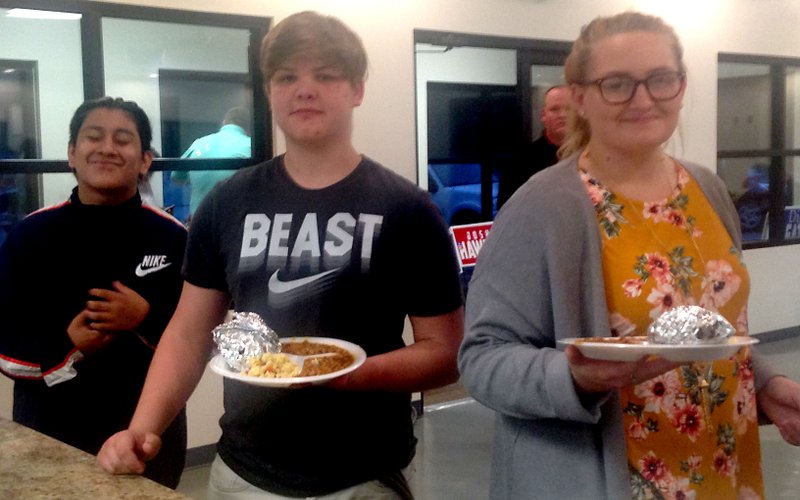A year ago, Lena Kirch had a long-term goal that seemed within reach. She knew it wouldn't be hard, but possible, and the job as a retail cashier wouldn't stretch her.
These days, the young lady is working toward a trauma nurse career, something she wouldn't have thought possible a year ago.
Her involvement in the Advocates for Better Choices propelled her to reach, stretch, seek.
These days, Kirch is working toward her certified nursing assistant degree at Crowder College and hopes to become a trauma nurse.
What changed?
"I learned how easily my actions can affect my life," she said.
Kirch entered a drug treatment court program about a year ago. She was scared and nervous and didn't know what to expect.
"It was a big lifestyle change for me," she said.
The teen learned more about self-respect, integrity and overall respect for others.
She stayed sober, realized her strengths and found that getting help from people was "really amazing."
With an improvement in grades and her attitude, Kirch began to realize she could pursue a career in other areas, something she hadn't previously considered.
With more self-confidence, Kirch now believes she has the skill set to handle serving as a trauma nurse.
"I like helping people," she said. "(When you work as a trauma nurse), you never know what you're going to get."
Alissa Hendricks has the opportunity to see the teens grow through the program and by the opportunities presented through Advocates for Better Choices. Hendricks serves as treatment court administrator for the 40th Judicial Circuit Court as well as serving as ABC chairman. The nonprofit group grew out of the Alliance of Southwest Missouri umbrella as a way to help fund juvenile treatment court, she said.
ABC works to raise awareness, to educate and to raise money for treatment court programs in McDonald and Newton counties.
ABC helps support the teens during treatment and their involvement in a club or a sport. In addition to helping the teens with items like cleats for soccer or other various needs, ABC also takes the teens on educational trips to places such as Crystal Bridges or the World War I Museum in Kansas City, to expand their horizons.
Positions in ABC are volunteer roles.
"All of our members give of their time simply because they believe in treatment courts and have a passion for helping kids in need," Hendricks said.
On this particular night, teens from the program helped cook and serve dinner for those in attendance at the Republican Club meeting on Oct. 25 at the Pineville Community Center.
Helping out reaps several benefits, she said.
"The Republican Club dinner was just another opportunity we saw where we could fundraise for our group, with the addition of our kids giving back to the citizens of our community," Hendricks said.
"It also gives the community an opportunity to get to know our kids and put faces with what substance use disorder looks like ... finding humanity in addiction is key to erasing the stigma associated to this disease."
Teens in the program are often referred through the juvenile office, a school or resource officer. Other times, the teen may be a candidate because a warrant was served in the home, she said.
Teens have various situations. Sometimes, they are a product of their environment, Hendricks said.
Some teens don't know anything different and believe their less fortunate environment is normal for them.
To help each teen, the treatment program offers an individualized plan, which can include dealing with substance abuse, mental health issues and sometimes, trauma care.
Parents are also included in the treatment plan.
Treatment usually takes 13 to 15 months, depending on the progress made. On average, 40 to 50 teens cycle through the program. A graduation ceremony helps the teen and his or her family celebrate, complete with a reception of sorts, a certificate and a gift card.
Though the road is hard and the journey sometimes seems long, Hendricks says it's satisfying to see the teens become successful.
"It's really rewarding to see them turn their lives around," she said. "To break some cycles."
General News on 11/01/2018
